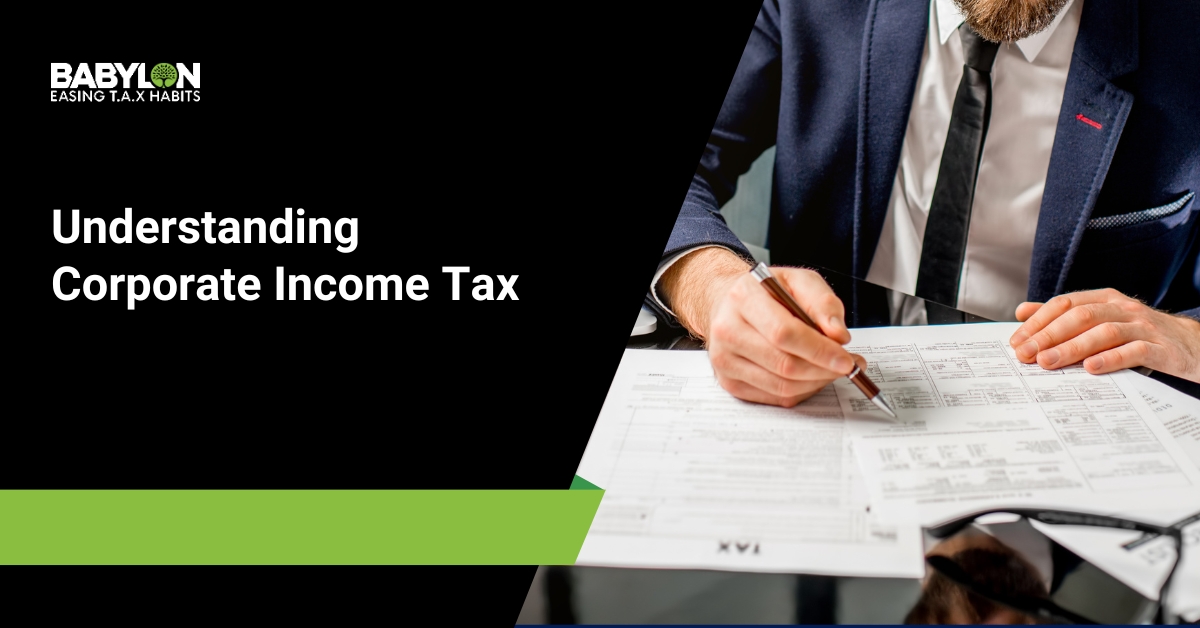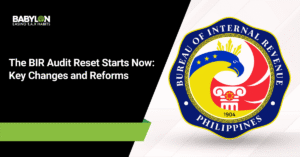Businesses in the Philippines need to understand corporate income tax because it directly affects financial health and compliance with local regulations.
In a country where corporations are subject to specific tax laws, navigating the intricacies of income tax becomes imperative. Non-compliance with these tax regulations can lead to severe consequences, including hefty penalties, legal ramifications, and damage to the company’s reputation.
This article aims to equip you with the knowledge necessary to ensure compliance with tax laws and achieve financial sustainability.
What is Corporate Income Tax?
Corporate income tax is a tax imposed by governments on the net income earned by corporations and businesses operating within their jurisdiction. This tax is applied to the income generated from various sources, including revenue from sales, investments, and other business activities. Corporations are typically required to report their income, deductions, and credits to calculate the amount of corporate income tax they owe.
Corporate Income Tax Rate in the Philippines
Understanding local tax laws is essential for managing tax obligations and capitalizing on available incentives. Seeking guidance from tax professionals or the Bureau of Internal Revenue (BIR) can assist companies in navigating corporate taxation complexities.
Regular Corporate Income Tax
The regular corporate income tax rates in the Philippines vary depending on residency status, with domestic and foreign residents facing rates of either 20% or 25% of taxable income. Additionally, foreign non-residents are subject to a flat rate of 25% applied to gross income.
Minimum Corporate Income Tax
The minimum corporate income tax in the Philippines stands at 2% of gross income for both domestic and foreign residents. However, there is no minimum tax requirement for foreign non-residents.
Common Corporate Tax Deductible Expenses in the Philippines
If you want to make the most out of your tax deductions, keep in mind that corporate taxpayers have the option to use either the OSD or itemized deduction. Here are some categories you should be aware of:
Employee Salaries and Other Benefits
Salaries, wages, bonuses, allowances, and other compensations provided to employees are deductible expenses for businesses under income tax regulations. These deductions help reduce the employer’s taxable income.
Corporations should be aware of the following contributions:
| Contribution | Employer Rate | Employee Rate | Maximum Monthly Salary Base | Purpose |
| Social Security System (SSS) | 9.5% | 4.5% | PHP 30,000 | Ensures employees have access to retirement, disability, and social security benefits. |
| Philippine Health Insurance Corporation (PhilHealth) | 5% | 5% | PHP 100,000 | Provides affordable healthcare services for employees and their dependents |
| Pag-IBIG Fund | 2% | 1% (if earning PHP 1,500 or less); 2% (if earning more than PHP 1,500) | PHP 5,000 | Aids in home financing, short-term loans, and retirement savings |
Donations and Charity
In most cases, you can deduct up to 5% of your taxable income for charitable donations. On the other hand, donations to BIR-accredited organizations are fully deductible—within reason and under specific circumstances.
Representation and Entertainment
Businesses can claim tax deductions for representation and entertainment expenses, reducing taxable income and lowering taxes owed. Under Bureau of Internal Revenue (BIR) Regulations No. 10-2002, a service company is limited to claiming representation expenses of up to 1% of the net revenue, while businesses involved in selling goods and properties can only claim representation expenses of up to 0.5% of their net sales.
Marketing Expenses
Claiming marketing, advertising, and promotion costs as a tax deduction in the Philippines is possible when considered a reasonable and necessary business expense. This includes things like using marketing and graphic design services, making content, printing posters, and investing in social media adverts.
Office Supplies
You can deduct everyday tools, equipment, and office supplies from your taxes. This could include items such as paper, pencils, paper clips, and more. It is important to keep track of your receipts to support your tax deductions.
Bad Debts
These are debts that your company is owed but can’t collect. You can usually claim them as deductions if you confirm they’re worthless and write them off during the tax year. If you’ve deducted bad debts in previous years and recovered them later, you’ll include that recovery as income for the year up to the tax benefit you received.
Interest Expenses
Interest expenses for your profession, trade, or business are deductible, but 20% of the interest income is subject to a reduction. This rate may change based on interest income tax adjustments. Exceptions include advance cash basis interest payments, transactions with certain individuals, or debts related to petroleum exploration. You may also deduct or treat interest expenses for acquiring business property as capital expenditure.
Taxes
You can deduct taxes paid for your profession, trade, or business during the tax year, with exceptions such as income taxes under this title, foreign income taxes (unless you opt out of foreign tax credits), and estate and donor’s taxes. If you receive refunds or credits for these taxes, you must add them to your gross income in the year received up to the previous tax benefit claimed.
Additionally, tax deductions are limited to nonresident aliens and resident foreign corporations if they’re connected to income from sources within the Philippines.
Ordinary and Necessary Expenses
You’re allowed to deduct all necessary expenses related to your trade, business, or profession for the taxable year. This covers salaries, travel costs, rentals, and even entertainment expenses directly linked to your business activities. Moreover, there’s an extra deduction for labor training expenses incurred for enterprise-based trainees, provided you meet certification requirements and adhere to certain limits.
Depreciation
Depreciation allows you to deduct a reasonable allowance for the wear and tear, including obsolescence, of property used in your business. If you own property held by one person for life with remainder to another, the deduction is calculated as if the life tenant were the absolute owner. Similarly, for properties held in trust, the deduction is divided between income beneficiaries and in trust based on specified trust income allowances.
Losses
Losses incurred during the taxable year are deductible if not covered by insurance or indemnity. These deductions apply to losses related to your trade, profession, or business, including property losses from incidents like fires or theft. Rules set by the Secretary of Finance, with the Commissioner’s recommendation, govern the declaration of losses, usually within thirty to ninety days of discovery. Still, losses claimed for estate tax cannot be deducted again for income tax.
Research & Development Expenses
Research or development expenses incurred during the taxable year for your trade, business, or profession are treated as ordinary and necessary expenses. These expenditures can be deducted from your taxable income in the year they are paid or incurred. If you’ve invested in research or development activities for your business operations, you can claim these expenses as deductions, reducing your overall tax liability for the year.
Common Challenges in Corporate Tax
It is already difficult enough to do and pay taxes correctly. That’s why, to stay out of legal hot water, you must know the procedure inside and out. Some of the most typical difficulties with corporation taxes are as follows:
Complicated Tax System
The complicated tax system means that corporations face challenges in understanding and complying with tax laws, which can lead to errors or oversights in their tax payments. This complexity can result in additional costs, penalties, and difficulties in planning for taxes effectively.
High-Income Tax Rate
The Philippines has one of the highest income tax rates in Southeast Asia, which burdens corporate owners. This makes it difficult for them to produce more goods and services, hampering their business growth. Additionally, it discourages some investors from doing business in the country, which affects economic growth.
Tax Audits and Disputes
Corporations in the Philippines may face tax audits and disputes with tax authorities. Disputes can happen due to differences in interpretation or compliance issues, leading to prolonged legal proceedings and potential financial liabilities.
Cross-Border Transactions
Managing the tax implications of cross-border transactions can be complex. Corporations should understand withholding tax obligations, double taxation issues, and tax treaty provisions to mitigate risks and optimize tax outcomes.
Tax Incentives and Special Economic Zones
Tax incentives and benefits are available in the Philippines to stimulate investment and foster economic progress, particularly within special economic zones. However, corporations may find it difficult to navigate the requirements and compliance responsibilities associated with these incentives.
Changing Regulatory Environment
Keeping pace with tax laws, regulations, and policy changes is essential for corporations in the Philippines. Staying updated on regulatory developments and adapting tax strategies accordingly is crucial to avoid non-compliance and penalties.
FAQs
How do you compute corporate income tax in the Philippines?
Companies in the Philippines compute their corporate income tax by applying the applicable rates to their taxable income, subtracting allowable expenses and tax credits. For instance, the Regular Corporate Income Tax (RCIT) can be 20% or 25% of taxable income, while the Minimum Corporate Income Tax (MCIT) is typically calculated at 2% of gross income.
How much is the tax for small businesses in the Philippines?
For small businesses classified as domestic corporations with taxable income not exceeding PHP 5,000,000.00 and with total assets not exceeding PHP 100 million (excluding the land on which the business entity’s office, plant, and equipment are situated), they enjoy a reduced corporate tax rate of only 20% of its taxable income instead of the general income tax rate of 25%.
Avoid Legal Implications in Tax Returns with Babylon2k
Understanding corporate income tax is essential for businesses to thrive in any economy, including the Philippines. Complying with tax regulations ensures your company’s financial sustainability and contributes to the nation’s development.
To avoid legal implications and streamline your tax return process, partner with Babylon2k today by messaging our AI chatbot. You can also reach us at [email protected] or through Viber/WhatsApp at +63-927-945-3382. Our dedicated team is here to assist you in accurately and efficiently filing your 2-DAY ITR.
Don’t let tax complications weigh you down. Take advantage of our expertise and make your tax journey hassle-free.






